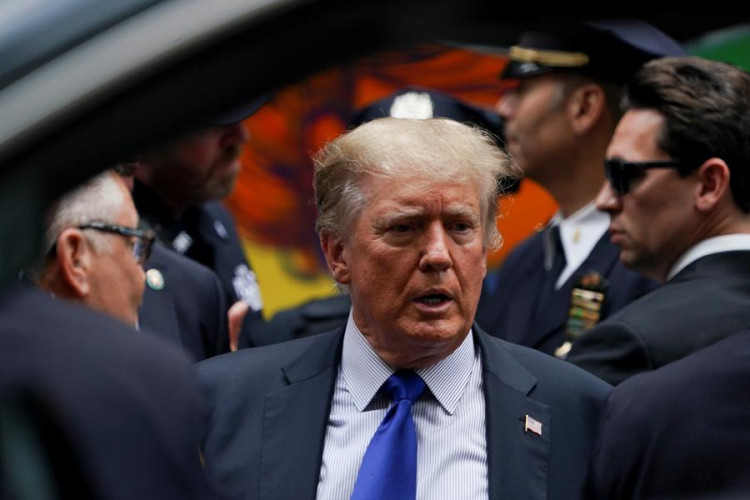Former President Donald Trump, a figure synonymous with real estate extravagance and political controversy, finds himself in a vulnerable legal position as he takes the stand in a high-stakes $250 million civil fraud trial in Manhattan. The case, which poses a serious threat to the Trump family's business clout, stems from accusations by New York Attorney General Letitia James of systematic financial improprieties within the Trump Organization.
At the heart of the lawsuit is the claim that Trump, alongside top executives and his two eldest sons, Donald Trump Jr. and Eric Trump, engaged in a pattern of exaggerating property values. The inflated numbers, prosecutors argue, were used to lure banks into favorable loan agreements. "The number of grossly inflated asset values is staggering," the suit claims, painting a picture of deception that spanned most of the real estate portfolio.
The courtroom drama unfolds as Trump, also a Republican presidential hopeful for 2024, navigates the legal intricacies of testimony-a setting where his characteristic bravado may clash with the rigors of judicial procedure. On the defensive, Trump maintains that his financial disclosures were never intended as gospel truth, suggesting the onus was on the banks to "do their own due diligence."
Yet, the words of Trump's former personal lawyer, Michael Cohen, haunt the proceedings. Cohen has publicly accused Trump of manipulating financial statements-a charge the Trump camp has fervently denied. In a notable August 2022 deposition, Trump's reticence was evident when he invoked the Fifth Amendment over 440 times, a strategic silence that carries more weight in civil court, where it can signal evasiveness about the allegations.
The former president's testimony is set to follow that of his sons, who, last week, professed a lack of recollection regarding key financial disclosures. This defense strategy, emphasizing reliance on accountants for financial reporting, underscores the complexity of pinning down individual accountability in corporate operations.
The case is further complicated by the dynamic between Trump's legal team and the presiding Judge Arthur Engoron, who has found the defendants liable for fraud and invalidated their New York business certificates. Engoron, whom Trump has branded a "Trump hating, radical left, Democrat operative judge," recently instituted a gag order restraining Trump's lawyers from disparaging his staff-a decree issued after tensions rose in the courtroom.
The trial is expected to span into late December, with no jury present. Engoron's preliminary rulings and the appeal lodged by Trump underscore the contentious nature of the suit, where Trump's defense counters with arguments of bank profitability and disclaimers on financial statements.
As the legal narrative unfolds, it remains to be seen how the balance will tip in a case that not only tests Trump's litigation mettle but also the resilience of his business empire. With Ivanka Trump's testimony anticipated and the courthouse closed for Election Day, the proceedings are likely to extend, keeping public attention riveted on the Manhattan courthouse where the future of the Trump brand hangs in the balance.






